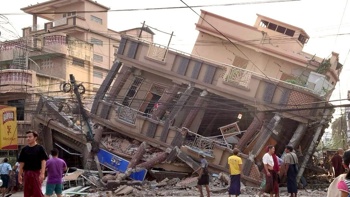
The Independent Police Conduct Authority is calling for new legislation creating a regime for how officers deal with protests.
The current framework relating to the handling of protests is “inadequate and not fit for purpose,” authority chairman Judge Kenneth Johnston KC said.
“It leaves frontline police officers and their supervisors to determine what constitutes reasonable restrictions on protesters’ rights, with only general and high-level guidance in statute and case law. This creates a large measure of uncertainty as to the limits of lawful protest, and substantial inconsistency in police practice.”
The findings stem from a review undertaken by the IPCA following complaints about the handling of a protest at Auckland’s Albert Park in March 2023 in support of anti-transgender rights campaigner Posie Parker. The review was also informed by complaintss about police handling of protests relating to Israel and Gaza.
The IPCA said that unlike other jurisdictions that New Zealand often compares itself to, there is no legislation here setting out a process for determining in advice what restrictions can be placed on freedoms of assembly, movement or expression.
Most local authorities have bylaws that require advance notification of a protest in a public place, but the IPCA said these were rarely enforced and their “broad scope often rendered them inconsistent with the Bill of Rights Act or otherwise invalid”.
The IPCA found internal changes could help, such as improvements to training and more detailed guidance for officers needing to balance public safety and people’s right to protest.
However, these would be “insufficient to address the problem”, the IPCA said.
It therefore recommended police propose new legislation which “contains both a set of over-arching principles relating to an actual or anticipated protest (or other assembly) that might justify limitations on fundamental rights such as the freedoms of expression, assembly and movement, and specific powers in relation to how such events may be managed and controlled”.
The IPCA said the legislation should:
- create a new regulatory regime for advance notification by organisers of designated types of assemblies (including protests);
- allow senior police officers, in consultation with local authorities (and, in relation to a state highway, NZ Transport Agency Waka Kotahi), to set conditions in advance as to the way in which a protest must be conducted with which participants must comply;
- specify that either (a) notification and the conducting of a protest substantially in accordance with the terms of the notification would protect participants from criminal and civil liability; or (b) a failure to notify would constitute a criminal offence;
- govern when a traffic management plan is required, and specify who should be responsible for it;
- contain a new, fit-for-purpose offence provision, which would replace certain current criminal offences in the public assembly area; and
- create a specific offence relating to the picketing of private residences.
“The authority’s proposals are not intended to impose greater general constraints on the right to protest”, Judge Johnston said. “This right is fundamental to a democracy and protected by the Bill of Rights Act.”
“Our proposals are designed to provide greater protection for protestors by creating a process for decisions to be made in advance about how to preserve and facilitate the rights of freedom of assembly, movement and expression on the one hand and provide reasonable constraints for the protection of public safety and order on the other.”
The judge said the need for this framework will only increase as “the public protest environment, aided by social media, continues to evolve”.
“Without such a legislative regime, the preservation of fundamental rights is likely to come under increasing threat.”
In relation to some of the complaints about police’s handling of the protests, the IPCA found some actions were “unlawful and unduly constrained the right to protest, but ascribe many of what might otherwise be regarded as Police failings to the uncertainty of the current law.
“The review that forms the basis for this report was undertaken in collaboration with police. We also consulted with the Ministry of Justice and the Department of Internal Affairs and others. These ranged from frontline police officers with expertise in public order policing, to academic and policing experts in both New Zealand and comparable jurisdictions including the United Kingdom, Ireland and some Australian states.”
Jamie Ensor is a political reporter in the NZ Herald Press Gallery team based at Parliament. He was previously a TV reporter and digital producer in the Newshub Press Gallery office.
Take your Radio, Podcasts and Music with you









